Kazakh Director Releases Film about Legendary Wrestler Kazhymukan Munaitpasov
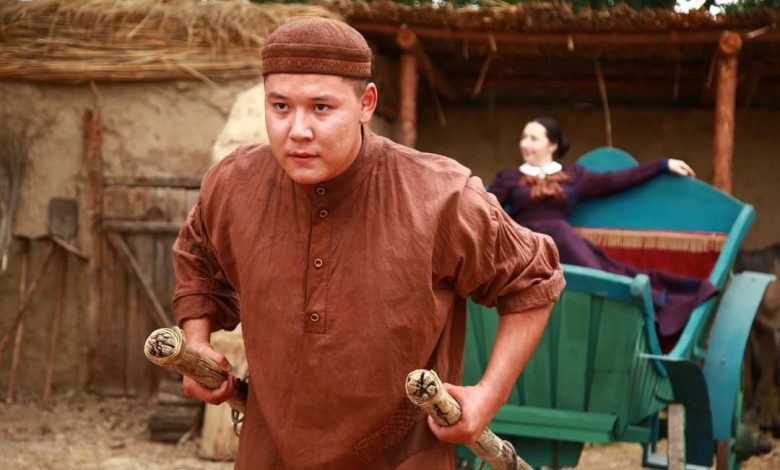
ASTANA – Film director Kanagat Mustafin’s latest movie, “Kazhymukan” about wrestler Kazhymukan Munaitpasov, premiered on Oct. 10. The film, which took over a decade of research and preparation, brings the story of Kazakhstan’s first world champion in wrestling to the big screen.
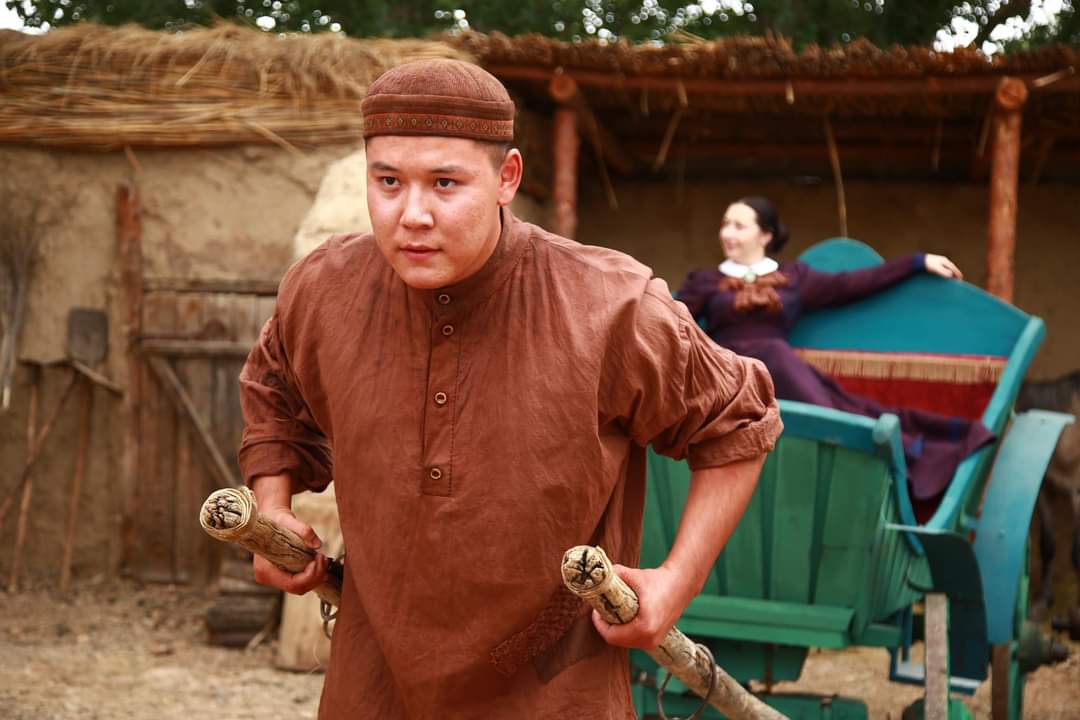
A scene from the movie. Photo credit: Mustafin’s personal archieve
Munaitpasov (1871-1948), who won 48 medals throughout his career, was not only an international wrestling champion but also a national hero. He earned the honorary title of Batyr (warrior) of the Kazakh steppe and famously donated an airplane to the front during the Second World War.
“The idea for the film came to me in 2012,” Mustafin told The Astana Times. “I realized that my knowledge of Munaitpasov was limited to what I had learned in school. I knew he had donated a plane during the war and that he was our first world champion, but that was it”.
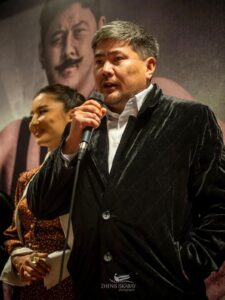
Kanagat Mustafin, the film director. Photo credit: Mustafin’s personal archieve
Driven to learn more, Mustafin began researching Munaitpasov’s life. He was particularly struck by the wrestler’s lineage and his strength, both physical and moral.
“Munaitpasov weighed nine kilograms at birth and tragically lost his mother, but he was a direct descendant of batyrs. His story fascinated me,” said Mustafin.
Mustafin collaborated with writer Zhanat Kasabekov to refine the script, which he then submitted to Kazakhfilm, though funding for the project was initially unavailable. Despite setbacks, Mustafin continued his research, meeting historians and Munaitpasov’s relatives. He later received approval from the wrestler’s grandson, composer Bakhytzhan Kazhymukan, to move forward with the project.
The project gained traction in 2019 when the newly established National Cinema Support Center provided financial backing.
“I explained that this film would be entirely different from others, focusing solely on the wrestler’s life from birth to death, to truly uncover the legacy of this legendary man,” said Mustafin.
A true patriot
Mustafin emphasized that Munaitpasov’s loyalty to his homeland defined him as much as his wrestling accolades. The wrestler turned down offers to stay abroad, including one to become a pasha (a title of a Turkish officer of high rank) in Türkiye and another to inherit part of a kingdom in Sweden.
“Everywhere he went, people recognized his strength and wanted him to stay. But he remained committed to Kazakhstan and his people,” said Mustafin.
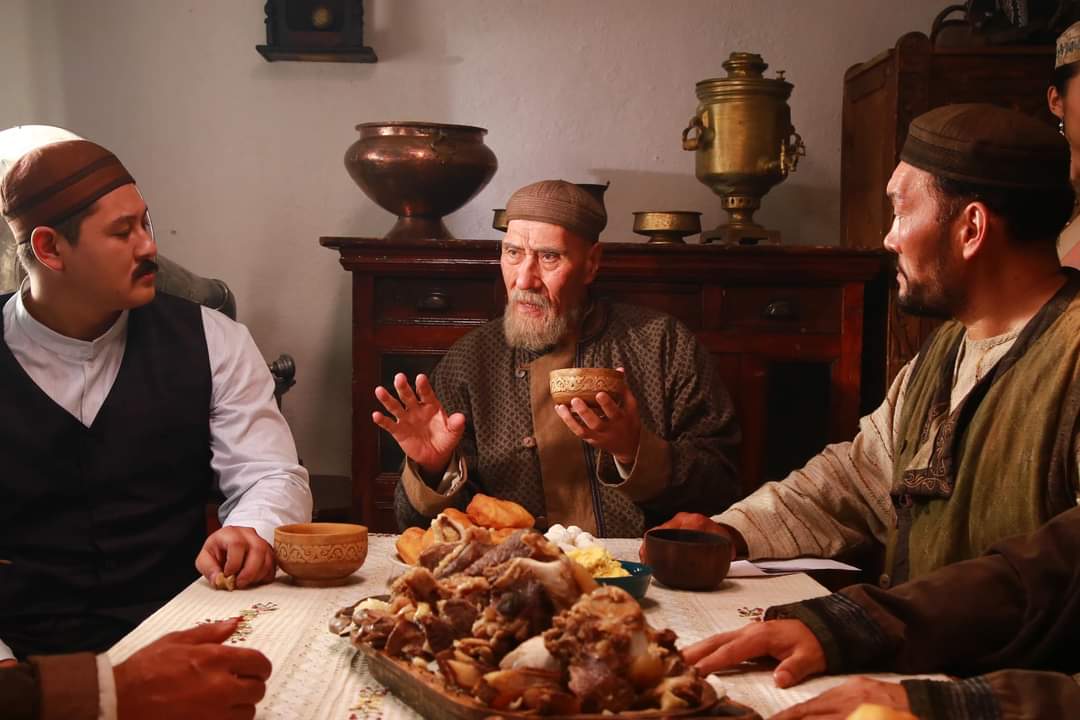
A scene from “Kazhymukan” movie. Photo credit: Mustafin’s personal archieve
Mustafin also recounted how Munaitpasov demonstrated his generosity and leadership during the famine, feeding a whole aul (village) of around 30 families with money he earned from his performances. His support extended beyond his village, helping an entire region.
Later in life, he sold all his possessions to fulfill his promise of buying an airplane for the front, leaving himself in poverty.
“He died with nothing, but his commitment to his word was unwavering. He even continued performing into his seventies, lifting weights equivalent to a small car because he had made a promise,” said Mustafin.
Inspiring a new generation
“I want today’s youth to understand that if you make a promise, you must follow through,” said Mustafin. “The film shows how Munaitpasov was raised under tough conditions by his father and grandfather, without the warmth of a mother’s care, but they instilled in him values that reflect strong, proper upbringing”.
Mustafin shared that the film’s primary goal is to inspire young people and ignite a strong sporting spirit in them.
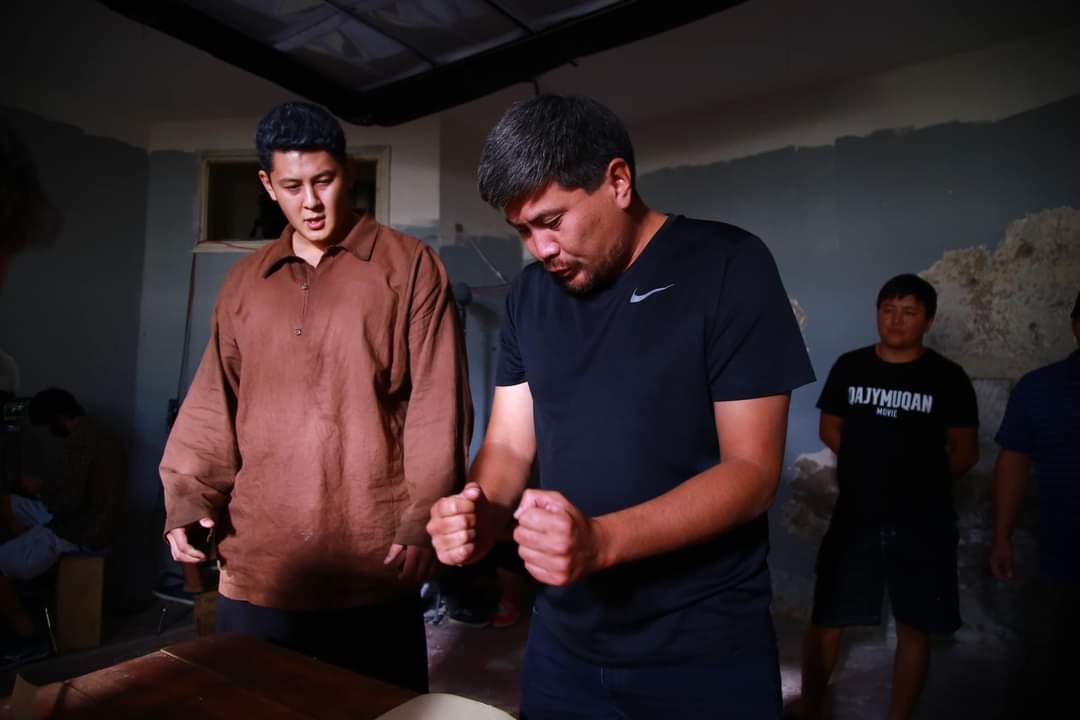
Mustafin directing the actors. Photo credit: Mustafin’s personal archieve
“One of the key messages I wanted to highlight through this project is that we have our own heroes. I hope that thousands of young Kazakh children will be inspired to take up wrestling and dream of becoming world champions. That is the ultimate goal. And I think this idea is starting to come to life,” he said.
Since the film’s release, Mustafin has received messages from parents sharing that their children were inspired by the film and now aspire to follow in Munaitpasov’s footsteps.
“People are quoting lines from the film, such as ‘I don’t know French wrestling, but I know Kazakh wrestling, and I want to do Kazakh wrestling.’ It is incredibly rewarding to see this impact,” said Mustafin.
Behind the scenes: casting and challenges
The film was shot nationwide with an international cast, including actors from Belarus, the Kyrgyz Republic, Russia and Uzbekistan.
Mustafin noted that for a historical film, fresh faces were needed to maintain authenticity.
“We reviewed 2,000 candidates, including wrestlers, basketball players, volleyball players before ultimately casting brothers Dias and Yerbol Tulepbergen to portray the legendary figure at different stages of his life,” said Mustafin. “We needed someone around two meters tall to give that imposing presence—when the character entered a room, everyone had to know it was Munaitpasov”.
Mustafin also highlighted some of the epic moments depicted in the film, such as the wrestler lifting a horse and even a heavy truck.
“We used computer-generated imagery to create these scenes—it is the magic of cinema—but they were based on real-life events. Munaitpasov once carried 15 people seated on a 15-meter-long railway track that weighed over a ton as he walked around the ring. His strength was extraordinary, almost superhuman,” he said.
The production faced numerous challenges, particularly during the Covid-19 pandemic, which shut down filming for six months. Despite these setbacks, the team remained dedicated.
“We spent a year and a half preparing, making 600 costumes and 300 different beards and mustaches. Every film has its challenges, but we overcame them all and successfully completed the shoot,” added Mustafin.

